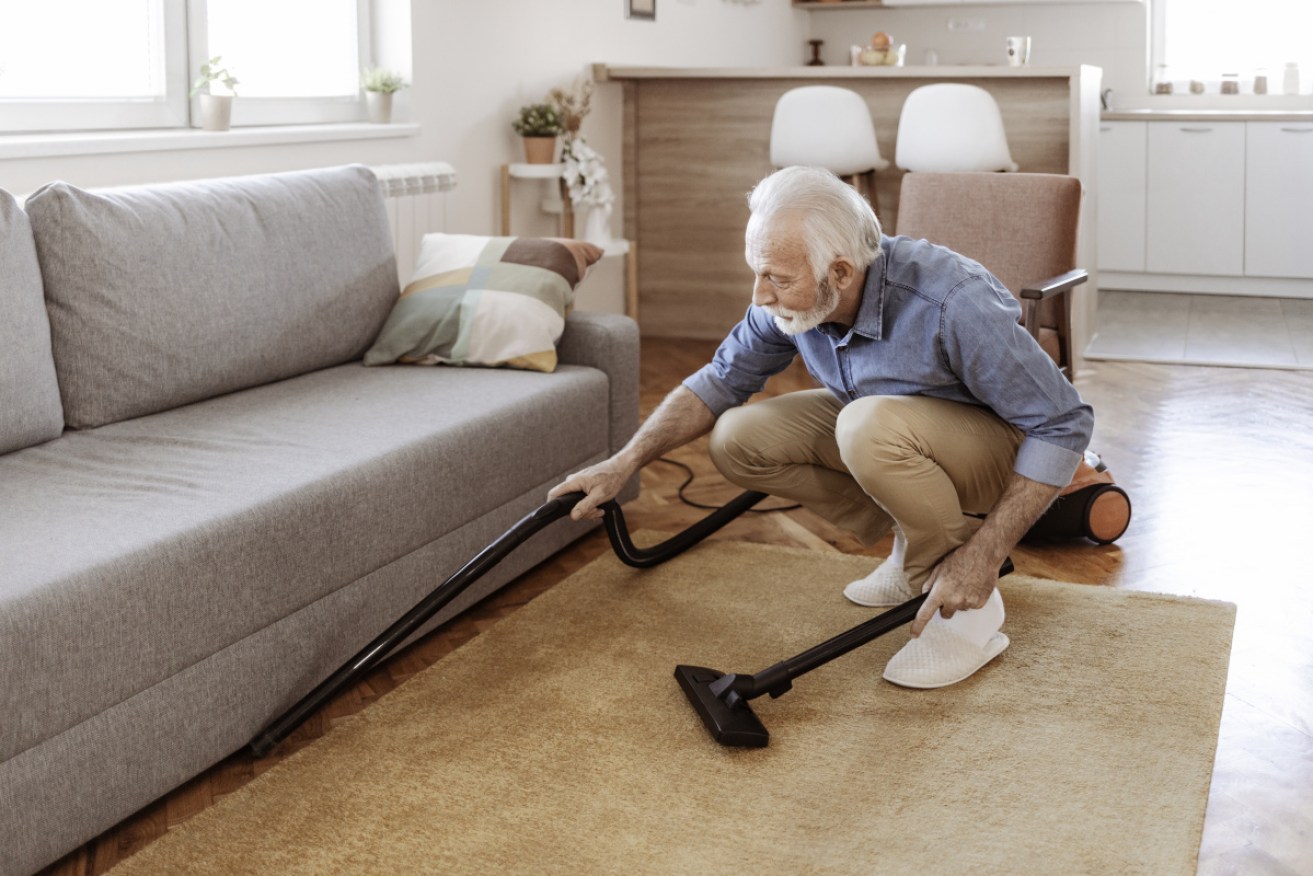Granny and grandad as kitchen slaves? It’s for their own good


Housework and gardening can help protect seniors against falls and heart disease. Photo: Getty
Got a room that needs painting? Invite your aged mother over and put her to work.
Overwhelmed with laundry, unmade beds and dirty floors? Your dear old dad can sort it out.
Keeping your elderly parents busy with housework, and even with painting and decorating, will sharpen their memory, keep their attention span stronger, and they’ll enjoy better leg strength.
The short version, according to two new studies: Mop-and-bucket seniors enjoy better balance, protection from falls, and mobility. And their hearts are more resilient.
When they complain that you’re taking advantage, simply explain that you’re keeping them fit.
Science says so
A study from the University of San Diego found that performing routine activities, referred to as ‘daily life movement’, can significantly benefit cardiovascular health among seniors.
Regular chores and even showering count towards ‘daily life movement’ and can offset a lack of dedicated exercise in protecting the heart.
Researchers used a machine-learning algorithm “to classify each minute spent while awake into one of five behaviours: Sitting, sitting in a vehicle, standing still, daily life movement, or walking or running”.
Daily life movement included “walking within a room or patio, getting dressed, preparing meals or gardening”.
Participants wore a research-grade accelerometer for up to seven days to get accurate measures of how much time they spent moving and, importantly, the smaller types of movement such as cooking.
This was a long-term study
These measurements were taken from May 2012 to April 2014.
There was a follow-up, through to February 2020, to see who had developed cardiovascular disease (CVD), who had suffered a stroke and who had died from CVD.
Compared to women with less than two hours per day of daily life movement, those women with at least four hours of daily life movement had a 43 per cent lower risk of cardiovascular disease, 43 per cent lower risk of coronary heart disease, 30 per cent lower risk of stroke and notably, a 62 per cent lower risk of cardiovascular disease death.
The message here was a simple one: All movement counts towards disease prevention.
The second study
Researchers at the Geriatric Education & Research Institute, Singapore, recruited 489 randomly selected adults, aged between 21 and 90, “with fewer than five underlying conditions and no cognitive issues”.
All were living independently and “able to carry out routine daily tasks”.
Participants were divided into two age bands: those aged 21 to 64 (average age 44), classified as ‘younger’; and seniors, aged 65 to 90 (average age 75), classified as ‘older.’
Both groups were assessed for physical stamina in tests that included walking speed and sit-to-stand speed from a chair. These indicate leg strength and the risk of falls.
Tests were used to assess mental agility, including short and delayed memory, and language and attention span.
Participants were “quizzed about the intensity and frequency of household chores they regularly did, as well as how many other types of physical activity they engaged in”.
Light housework included washing up, dusting, making the bed, hanging out the washing, ironing, tidying up, and cooking.
Heavy housework was defined as window cleaning, changing the bed, vacuuming, washing the floor, and activities such as painting/decorating.
Housework intensity was measured in what’s known as metabolic equivalent of task (METs). These are roughly equivalent to the number of calories expended per minute of physical activity.
After adjusting for other types of regular physical activity, “the results showed that housework was associated with sharper mental abilities and better physical capacity”.
But only among the older age group.
Why was that?
According to the researchers, those in the younger age group had five more years of education on average than the group of seniors.
And, they argue, “since education level is positively associated with baseline mental agility and slower cognitive decline, this might explain the observed differences in the impact of housework between the two age groups”.
The limitations of the research: Being an observational study, it can’t establish cause, and the study relied “on subjective reporting of physical activity levels and the volume and intensity of household chores”.
But the authors point to previous research indicating a link between aerobic exercise and improved cognitive function, “so the sharper mental agility associated with housework might occur through similar mechanisms”.
Their conclusion is a qualified one: “These results collectively suggest that the higher cognitive, physical and sensorimotor functions related to heavy housework activities might plausibly be associated with lower physiological fall risk among community-dwelling older adults.”








